Just a couple of years ago Kweku Collins was a kid in history class in Evanston, Ilinois, learning about the black war hero Nat Love, now he is signed to Closed Sessions, and traveling the globe to promote his latest project, Nat Love, inspired by that very class. Doing what you love for a living fresh out of high school is a dream to many. For Collins, music was something engrained in him since he was a child. He said he learned to play the drum before he could walk, meaning he learned rhythm before stride, which surely has aided in his production work. He produced his entire album.
Inspired by Kendrick and J Cole, and the Marleys, you can hear it in his cadence and delivery, but also in his approach and attitude about music. Collins is one of those true and rare emcees coming out in this day and age of hip hop and music, which is often party and turn up laden. For Collins making music is an art, something to be crafted and released. With one EP and an album under his belt, he is just young enough to grow further into his own sound and mastery.
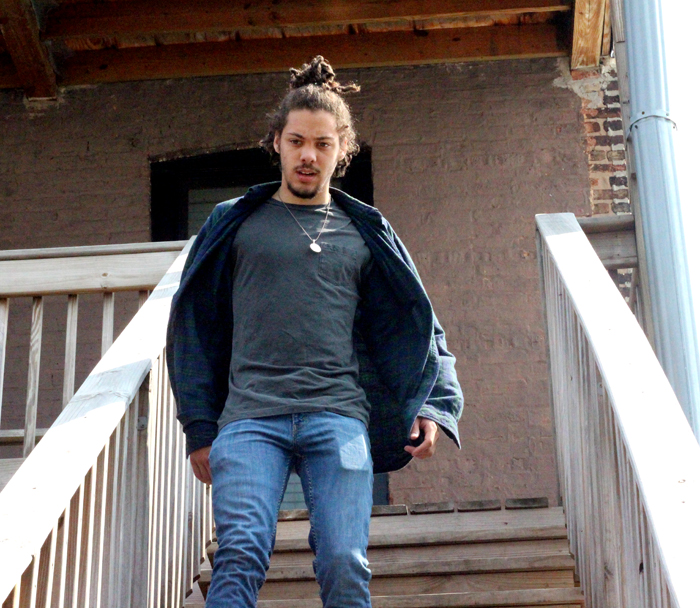
AMFM: How did you come to the decision to follow your passion straight out of high school instead of going to college? And was it a difficult decision?
KWEKU COLLINS: I always knew that music was the move. I come from a family of musicians by trade, and this is what I’m used to. I always knew that I had a musical gene, and from before I can remember that was all that I wanted to do. I had my little interests outside of music like Skateboarding, Zoology and things like that, but ultimately music is the thing that remained constant. In 6th grade, I was always telling people that if the music thing doesn’t work out I’m not going to school. Everyone told me that I would have to do that on the side and that I would have to have a legitimate plan. My passion grew stronger and stronger, and I knew that this was something that I had to be doing. It wasn’t until senior year of high school that It became official. It was probably the easiest decision I made in my life.
AMFM: What kind of person were you like in high school?
KWEKU: I was pretty mellow. Even when I was younger and a little bit more weird, I was mellow. I kinda flipped between groups of people. Not even because I’m like a temporary person, but because I could always maneuver between different lifestyles and types of people. I never really had any problems in high school that were personal. I was never fighting. I was pretty under the radar.
AMFM: Were you in shows, plays or performances in high school?
KWEKU: I did a few, but poetry and writing didn’t really contribute to my drive to pursue music, but it made me better at doing it. Louder Than A Bomb and English papers helped me learn my edge as a writer. It helped make me better, but it did not contribute to my wanting to do music as much.
AMFM: What did you take away from having a dad who is a African percussionist?
KWEKU: I started playing drums before I could walk. Outside of learning techniques and rhythms, learned at a very young age about stage presence from my dad. I learned this both from seeing him and the way he operated on stage, and I also got to perform with him a lot as a kid. I was able to take those experiences and integrate that into my current stage of my music.
AMFM: What other kind of musical influences did you get from your family?
KWEKU: My dad showed me so much music when I was a kid and it really shaped my view of music as more of like a world thing. I was listening to Mickey Heart, Ziggy, all the Marleys, and we had traditional African and Brazilian music playing all throughout the house – The Beatles, Jimi Hendrix – I guarantee that if you named it we listened to it. Except country and hip-hop.
AMFM: Why do you think its important to have a wide library of interest when it come to music and how does that influence the music that you make?
KWEKU: I think it keeps things interesting. An artist, a band, or a group has to have a sound that nobody else can do and not put out the same thing over and over again. Future doesn’t have that sound for me and I’m tired of hearing his music, but The Killers can put out the same album and I’d be like yo this is crazy! The evolution and that what I think is captivating is when an artist can progress their sound. Like Kendrick Lamar you can hear that all over his projects. You can hear the jazz influence on Section 80, the mainstream influence of Good Kid Maad City, and then back to the jazz influence on To Pimp a Butterfly and more of that on Untitled. Having a vast library of music keeps things interesting and it’s one of the best things to do as a musician. Once you run out of one sound, you have the whole world sonically at your productions.
AMFM: During your production you had your hands on all pieces of the music that you make, How does that intimacy with the work affect your work as a artist?
KWEKU: It’s very very personal. The music that I make is 100% me. It’s very important to me because that’s the vision that I have. Being able to express the full emotion of the song exactly the way I want is something that I always wanted to do.
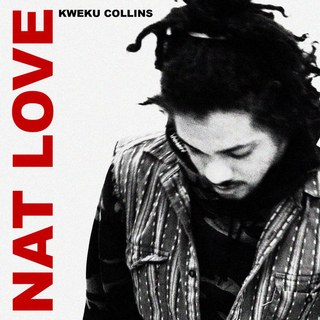
AMFM: What has changed since your first EP, Say it Now, Where it’s Safe, to your recent album Nat Love?
KWEKU: A lot of things have changed about me as a person and my life. It’s been magnified. The looks and the number of fans that the perception has expanded and been overwhelmingly positive and motivating. This recent release is more mature and varied in color. This project is more layered and there are more pieces to the puzzle.
AMFM: You chose to title of your album Nat Love after the folk slave hero. Why did you decide to do that and what about him kind of spoke to you and made you want to put that stamp on it?
KWEKU: It’s strange. I first read about him in my junior year history class and at that time high school history is never about people who look like you. So I’m sitting in this class learning about white person after white person, and then all of the sudden there’s this bad ass black cowboy that’s also a writer named Deadwood Dick. He was just a dope dude. That name has always stuck to me and I partially connected to the person it came from. I knew when I heard it that I needed to use it, but Its purpose didn’t really connect to me until after I finished this project. To me this project is what Nat Love is.
AMFM: What type of artist do you want people to see you as? What do you represent?
KWEKU: I represent people that just have no choice but to represent themselves. Being biracial you don’t really have a fixed group that you belong to. It’s like ‘Go back to Europe! Go back to Africa!’ This [America] is kinda where we belong. We were made here and not being able to fit in any group because you are biracial contributes to being culturally nomadic.The fact that you don’t fit anywhere means that you can fit everywhere. That’s really what I want people to take away. You don’t really have to be a part of things that people tell you to as long as you are comfortable and secure in who you are then you’re probably good. I don’t really know how I want people to see me or that even if I want people to see me. Whatever they take from the music is how they view me regardless. I don’t really have a way I want people to see me because I don’t really give a shit. I just make the art that I make and people are going to do what they want with it.
For more from Kweku Collins:
Photo Credits: Daniel Martinez
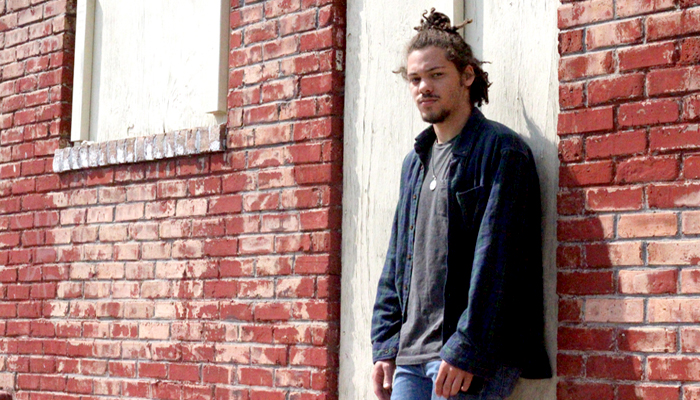
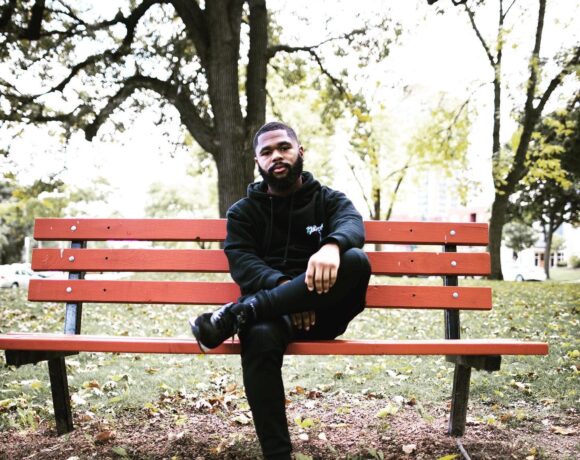

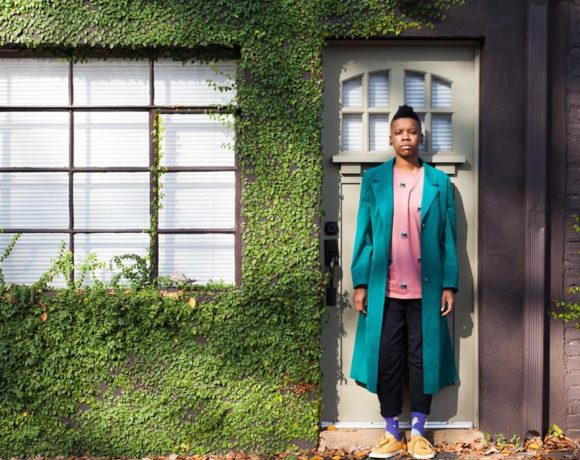
COMMENTS ARE OFF THIS POST